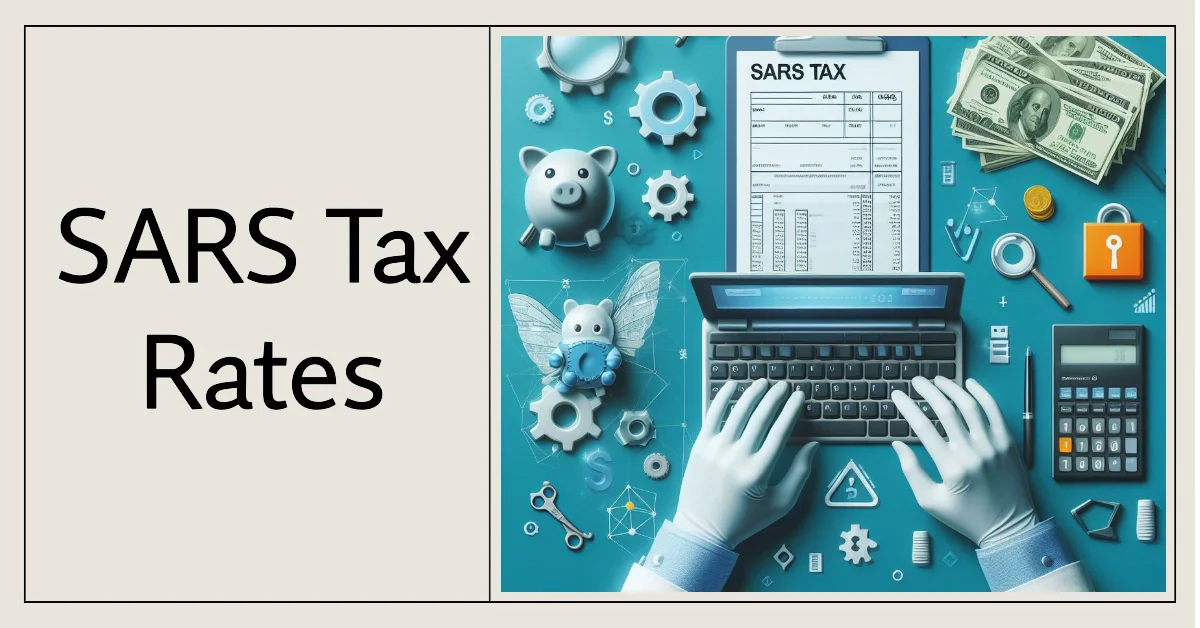For Advertising Contact Us
SARS Tax Rates 2024 – What Are the Current SARS Tax Rates and Brackets?

Most South African taxpayers are familiar with the importance of understanding the current SARS tax rates and brackets to effectively manage their finances and ensure compliance with the tax laws. SARS, the South African Revenue Service, determines tax rates based on income brackets to ensure a fair and equitable tax system for all taxpayers. In this blog post, we will probe into the details of the current SARS tax rates and brackets to provide clarity and guidance for taxpayers navigating the tax system in South Africa.
Overview of SARS Tax Structure
Income Tax Basics
Your journey to understanding the South African Revenue Service (SARS) tax structure starts with mastering the basics of income tax. Income tax is a tax imposed on individuals or entities that varies with the income or profits of the taxpayer. This tax is the main source of revenue for the government.
Types of Taxpayers
SARS identifies different types of taxpayers based on their income sources and legal structures. The main types of taxpayers are individuals, trusts, partnerships, companies, and small business corporations. Recognizing the type of taxpayer you are is vital for accurate tax compliance and filing.
| Income Tax Basics | Understanding income tax is crucial for taxpayers to fulfill their obligations. |
| Types of Taxpayers | Identifying the correct taxpayer category ensures compliance with SARS regulations. |
| Tax Rates and Brackets | Knowing the current tax rates and brackets helps in tax planning and budgeting. |
| Deductions and Credits | Claiming deductions and credits can reduce taxable income and lower the tax liability. |
| Reporting and Filing | Proper reporting and filing ensure timely submission and compliance with SARS requirements. |
Current SARS Tax Rates
Personal Income Tax Rates
Rates for personal income tax in South Africa are structured in brackets, with higher earners paying a greater percentage of tax on their income. The current tax rates range from 18% to 45%, with the highest bracket applying to individuals earning above a certain threshold. You can find the exact breakdown of these brackets on the SARS website or consult with a tax professional for personalized advice.
Corporate Income Tax Rates
Rates for corporate income tax in South Africa are determined based on the annual taxable income of the company. Currently, the corporate tax rate is 28% for all companies, with no differentiation between small or large businesses. This rate is crucial for businesses to consider when planning their financial obligations and ensuring compliance with SARS regulations.
This rate applies to all companies operating in South Africa, from small businesses to large corporations, and is a key factor to consider when evaluating the financial health and tax liabilities of a company.
SARS Tax Brackets
Understanding Tax Brackets
Assuming you are a taxpayer in South Africa, it is crucial to understand how SARS tax brackets work. Tax brackets determine the percentage of your income that you owe in taxes based on specified ranges of income.
Bracket Adjustments and Thresholds
SARS adjusts tax brackets annually to account for inflation and ensure that taxpayers are not unfairly burdened by paying higher taxes due to rising costs of living. The tax thresholds are also adjusted to provide relief for low-income earners and ensure that they are not taxed beyond their means.
The adjustments to tax brackets and thresholds are carefully calculated by SARS to maintain a fair and equitable tax system for all taxpayers in South Africa. By understanding these adjustments, taxpayers can better plan and manage their finances to meet their tax obligations while maximizing their tax benefits.
Other Relevant SARS Levies and Duties
Value-Added Tax (VAT) Rates
Now let’s look at Value-Added Tax (VAT) rates in South Africa. The current standard rate for VAT is 15%, which is levied on the supply of most goods and services. Certain items may be exempt from VAT or subject to a zero-rated VAT, such as basic food items, rent on residential properties, and certain healthcare services. It is important for businesses and individuals to understand how VAT applies to their transactions to ensure compliance with SARS regulations.
Capital Gains Tax (CGT) Rates
Other than income tax, Capital Gains Tax (CGT) is another important levy to consider. CGT is a tax on the profit made from the sale of an asset, such as property or investments. The current CGT rates range from 0% to 22.4% for individuals and 36% for companies. It’s crucial to keep track of your capital gains and understand the various exclusions, deductions, and rollover provisions available to minimize your tax liability.
Another important aspect to note about Capital Gains Tax (CGT) is that the rate at which CGT is applied depends on the type of taxpayer and the nature of the asset being disposed of. Individuals and companies may be subject to different CGT rates, and certain assets, such as primary homes, may qualify for special exclusions or deductions. Proper record-keeping and tax planning can help individuals and businesses navigate the complexities of CGT and optimize their tax position.
Conclusion
Ultimately, understanding the current SARS tax rates and brackets is important for all South African taxpayers to ensure compliance with tax regulations and to effectively plan their finances. By being aware of the tax rates that apply to different income brackets, individuals and businesses can make informed decisions about their financial affairs and take advantage of any available tax deductions or incentives. Staying up-to-date with the latest tax rates and brackets can help taxpayers minimize their tax liability and maximize their savings, ultimately contributing to their overall financial success.



